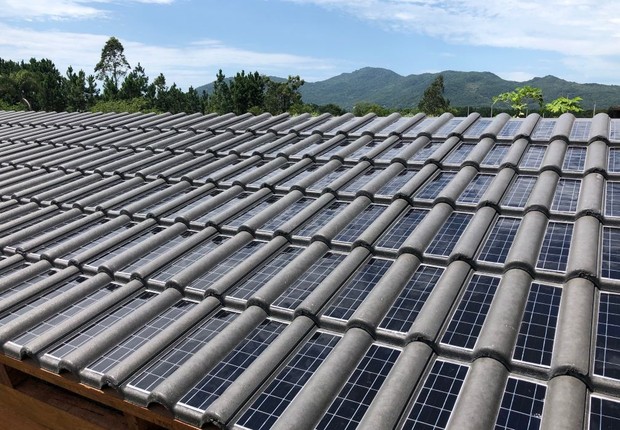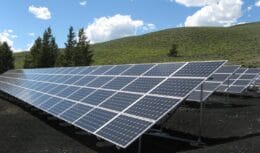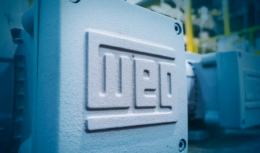
Photovoltaic cells implanted directly on the concrete tiles capture solar energy, replacing traditional solar panels.
Eternit was given authorization by Inmetro to sell concrete tiles capable of producing solar energy. With the certificate, the company can now start selling the product. Director of Aneel highlights billionaire investment in solar energy in Paraíba with the expectation of generating 50 jobs in the region by 2025
Read more
- 109 more solar energy equipment have import tax zeroed by the Government
- For the first time, solar and wind energy accounted for the majority of the world's new energy generation.
- Vacancies open in offshore regime to work in naval and petrochemical outsourced, based in Rio das Ostras and Rio de Janeiro
- Job vacancies to attend Petrobras contracts in Macaé for Electricians and Technicians to work offshore at UO-Rio and for Engineers on maintenance stop REFAP – RS
Photovoltaic cells implanted directly on the tiles capture solar energy, replacing traditional solar panels. The manufacturer of construction materials and responsible for the technology, expects that its commercialization will start only from the second quarter of 2021.
Each solar tile from Eternit Solar produces 9,16 watts and measures 365 x 475 mm. The average monthly production capacity of a single tile is 1,15 kilowatt hours per month (kwh/month). The concrete models have two finishing options and five colors: graphite gray, pearl gray, straw ivory, colonial beige and red.
According to the commercial director of the Eternit Group, Rodrigo Inácio, the estimate is that the concrete tile capable of producing solar energy will allow the consumer to save between 10% and 20% in the total purchase and installation cost of photovoltaic tiles, in relation to solar panels mounted on top of common roofs. The return on investment occurs between 3 to 5 years, depending on the system.
According to Eternit, a small residence needs around 150 tiles, while larger houses should use around 600 solar tiles. The rest of the roof can be done with ordinary tiles.
The company claims that, once installed, the system can generate returns over a period of 3 to 5 years.
A select group of customers will have early access to the new technology, which will be produced in a factory in the interior of São Paulo, belonging to the company Tégula Solar, which belongs to the Group Eternit.










Cool! This means that you…
That depends... do you have a passport? You have…
I agree, I have a super satisfied Monza…
Yes, I already did an exchange abroad, it came up…
Would you like to know more
I would like to know how it works
Mature fighting trafficking? Only if it’s…
And who gets the wealth from that...